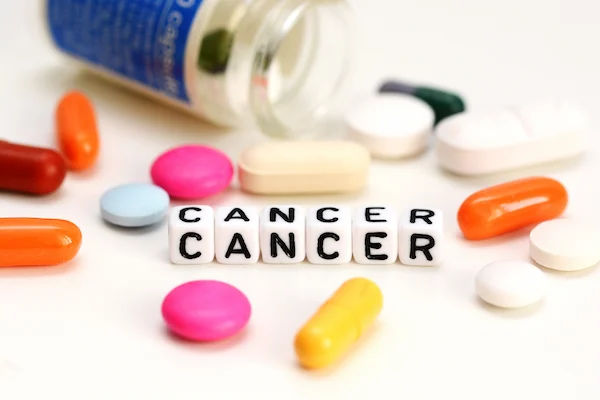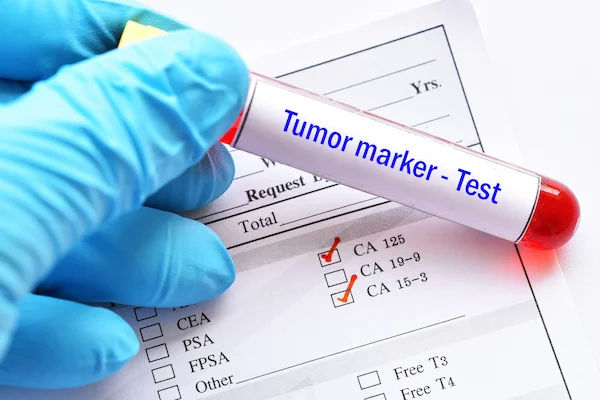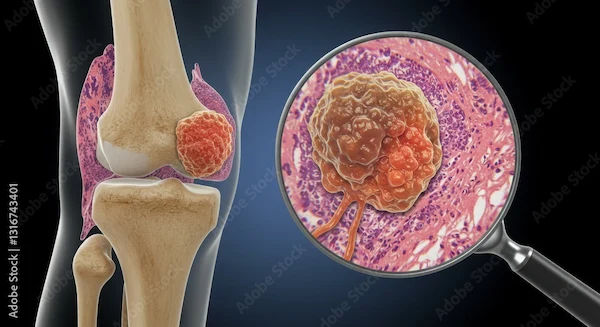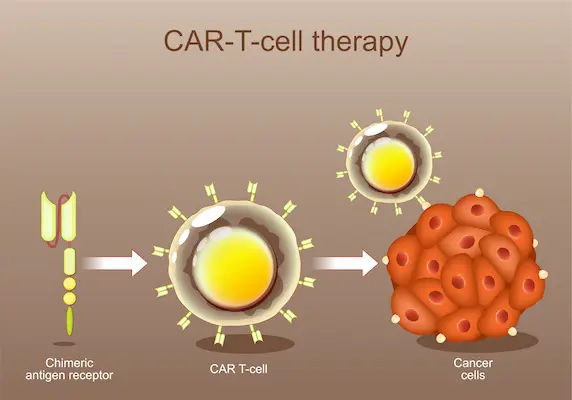Cancer Prevention: Tips and Guidelines
Preventive steps can lower the risks of cancer in individuals. Learn about the role of diet, exercise, vaccine, screening, and stress management in preventing cancer.

Written by Dr Sonia Bhatt
Last updated on 13th Jan, 2026
Cancer is a complex disease caused by abnormal growth of cells in any body tissue, leading to severe health challenges. An uncontrolled lifestyle, an unbalanced diet, and several other reasons can cause uncontrollable growth and spread of cells, leading to cancer.
Identifying and addressing these factors can help prevent this life-threatening condition and enhance overall health. Keep reading to discover effective strategies for cancer prevention!
Risk Factors for Cancer
Some risk factors associated with cancer are as follows:
1. Genetic Factors
Sometimes, the interaction between a single gene or several genes can increase cancer risks in some families. The common environmental factors often alter the genetic interaction and lead to cancer.
2. Lifestyle Factors
Lifestyle habits like smoking, consuming alcohol, food choices, etc., can increase the risks of cancer in an individual. Besides, an individual's diet, exposure to the sun, and other habits can also lead to cancer.
3. Environmental Exposures
Exposure to water and air pollutants, industrial waste, asbestos, certain chemicals, etc., can increase the chances of cancer. For instance, exposure to pesticides increases the risks of non-hodgkin lymphoma and leukaemia.
Asbestos exposure is associated with the risks of mesothelioma and lung cancer. Excessive exposure to radiation, such as UV radiation, ionising radiation, radioactive gas radon, etc., increases cancer risk.
Consult Top Oncologist
Role of Diet and Nutrition in Managing Cancer
A healthy diet can reduce an individual's risk of cancer. Keep reading to discover the foods to include and exclude from one's diet for a cancer-free, healthy life.
1. Foods to Include
As per studies, one must follow the proper calorie intake to control their weight, which helps lower cancer risks. Apart from that, one must take the following foods for cancer prevention:
Plant-based foods such as a lot of green vegetables, fresh fruits, whole grains, etc.
Multivitamins and folate from sources like leafy greens, beans, citrus fruits, etc.
2. Foods to Avoid
Here are some of the foods to avoid during cancer treatment or to reduce the risks associated with the disease:
Fried foods containing excessive hydrogenated oils
Sushi or any other form of raw or lightly cooked fish
Unpasteurised dairy products
Soft-cooked eggs
Foods like mayonnaise that contains raw eggs
Unwashed vegetables or fruits
Role of Physical Activity in Preventing Cancer
Maintaining a healthy weight can lower the risks of pancreas, colon, breast, liver, and kidney cancers. Thus, one should include physical activities in their daily life to keep their weight in check. Moderate exercising or aerobic activity for 20-30 minutes or strenuous activity for 10-12 minutes daily can help prevent cancer.
Avoiding Tobacco and Alcohol to Reduce Cancer Risks
Smoking and drinking can lead to severe health problems, including cancer. Keeping such habits in check is necessary for a healthy life.
1. Impact of Smoking on Cancer
Regular smoking can cause cancers of the kidney, lungs, cervix, and bladder. Apart from that, chewing tobacco can also lead to pancreatic or oral cavity cancer. Some individuals are exposed to passive smoking, which is equally injurious to health and can develop risks of lung cancer. Thus, avoiding tobacco consumption and smoking is one of the necessary steps to prevent cancer.
2. Effects of Alcohol Consumption
Alcohol consumption can also increase risks of throat, mouth, liver, breast, oesophagus, and other cancers. However, moderate consumption with guidelines can be preventive. While there is no universally safe level of alcohol consumption when it comes to cancer risk, following these guidelines can keep a person protected.
Sun Protection to Prevent Cancer
One of the most common cancers these days is skin cancer, which can be easily prevented by following these guidelines:
One must cover the skin as well as the head and wear sunglasses while going out in the sun.
It is necessary to use sunscreen with a minimum SPF of 30. When outdoors, one must apply sunscreen every two hours, even if the day is cloudy.
Sunrays contain UV (ultraviolet rays) that cause skin cancers. Thus, one should follow the above guidelines for sun protection from cancers.
Regular Health Screening for Cancer
One of the best ways to prevent cancer is to get routine screening tests. These tests can help detect cervical, colon, and other cancers at their treatable stages and can prevent the risk of developing the disease. In the case of colon cancer, screening tests find and remove adenomatous polyps (abnormal growths that can cause cancer) as a preventive measure.
Regular screening can also reduce the risks of cervical cancer among women. They can get an HPV (human papillomavirus) test along with the Pap (Papanicolaou) test to detect if they have an infection with an HPV of the highly risky type that can cause cancer.
Vaccinations to Prevent Cancer
Some viral infections can lead to cancers. Prevention of those infections can reduce cancer risks among individuals. Thus, one can contact healthcare professionals to get vaccinated against the following viral infections:
Hepatitis B: The HBV or Hepatitis B virus causes this liver disease. It can be a mild illness that lasts for a few weeks in its acute stage or a chronic illness that can cause liver cancer. Individuals can get a Hepatitis B vaccine to prevent the risks of this disease, which can lead to cancer.
Human Papillomavirus: HPV, or human papillomavirus, is a sexually transmitted disease that can develop in any sexually active individual. Chronic HPV infection can lead to cervical, vaginal, penile, anal, vulvar, as well as head and neck cancers. A timely HPV vaccine can reduce the risks of such cancers.
Role of Stress Management in Preventing Cancer
Individuals dealing with chronic stress have a high level of cortisol or stress hormone. These hormones can switch off DNA (deoxy-ribonucleic acid), repairing cellular systems and preventing cancers. Excessive DNA damage in some genes can kill these cells, reducing the chances of cancer.
However, if the stress hormones promote metastasis mechanisms and modulate the immune system, it can increase the chances of cancer. In fact, several studies have revealed the association of cortisol with cancer.
Stress management can prevent the risks of cancer in the following ways:
Physical Activity: Endorphins hormone, which is known for improving mood, is released during exercise, which can combat the risks of cancer by releasing stress. Besides, regular physical activity like jogging or yoga, when done in a park, can enhance social interaction, reducing stress among people.
Meditation: Practising meditation improves one's focus or attention through concentration on breathing or bodily sensations. Patients with prostate and breast cancers have been found to have reduced their stress levels through regular meditation.
Social Support: People dealing with stress often feel isolated, which leads to the secretion of hormones like cortisol. Social interaction can help reduce this feeling and improve mental health, contributing to cancer prevention.
Conclusion
Cancer prevention is a multifaceted approach that includes maintaining a healthy lifestyle by following several guidelines. From food habits to stress, individuals need to manage every aspect of life to prevent cancer from the core.
Consult Top Oncologist
Consult Top Oncologist

Dr. Asit Arora
Surgical Oncologist
20 Years • M.B.B.S., M.S. in General Surgery, M.Ch. in Gastrointestinal Surgery
Delhi
Apollo Hospitals Indraprastha, Delhi

Ms. Hiba Siddiqui
Oncologist
13 Years • BA (Hons), MA, Professional Certification Psycho-oncology, PhD
Delhi
Apollo Hospitals Indraprastha, Delhi

Dr Devashish Tripathi
Radiation Specialist Oncologist
20 Years • MBBS, PLAB, MRCP (UK)- General Medicine, FRCR (Oncology), Certificate of Completion of Training (CCT)- Clinical Oncology
Delhi
Apollo Hospitals Indraprastha, Delhi
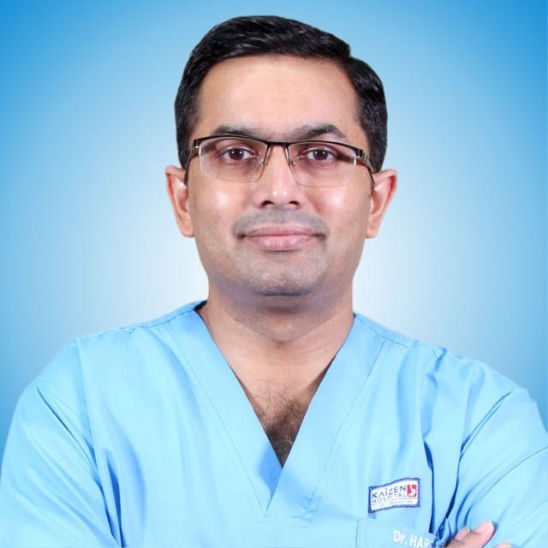
Dr. Harsh J Shah
Surgical Oncologist
15 Years • MS, MCh (GI), DrNB (GI)
Ahmedabad
Apollo Hospitals Gandhinagar, Ahmedabad
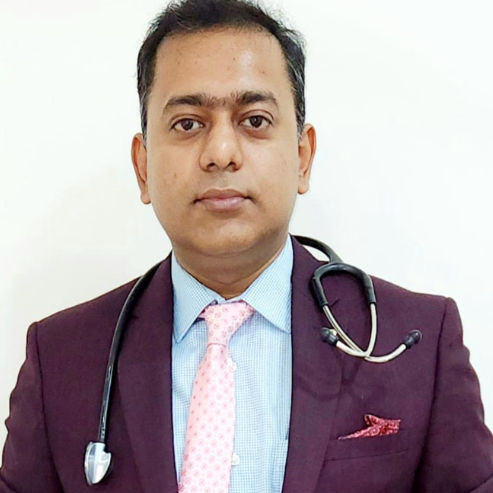
Dr.sanchayan Mandal
Medical Oncologist
17 Years • MBBS, DrNB( MEDICAL ONCOLOGY), DNB (RADIOTHERAPY),ECMO. PDCR. ASCO
Kolkata
Dr. Sanchayan Mandal Oncology Clinic, Kolkata
Consult Top Oncologist

Dr. Asit Arora
Surgical Oncologist
20 Years • M.B.B.S., M.S. in General Surgery, M.Ch. in Gastrointestinal Surgery
Delhi
Apollo Hospitals Indraprastha, Delhi

Ms. Hiba Siddiqui
Oncologist
13 Years • BA (Hons), MA, Professional Certification Psycho-oncology, PhD
Delhi
Apollo Hospitals Indraprastha, Delhi

Dr Devashish Tripathi
Radiation Specialist Oncologist
20 Years • MBBS, PLAB, MRCP (UK)- General Medicine, FRCR (Oncology), Certificate of Completion of Training (CCT)- Clinical Oncology
Delhi
Apollo Hospitals Indraprastha, Delhi

Dr. Harsh J Shah
Surgical Oncologist
15 Years • MS, MCh (GI), DrNB (GI)
Ahmedabad
Apollo Hospitals Gandhinagar, Ahmedabad

Dr.sanchayan Mandal
Medical Oncologist
17 Years • MBBS, DrNB( MEDICAL ONCOLOGY), DNB (RADIOTHERAPY),ECMO. PDCR. ASCO
Kolkata
Dr. Sanchayan Mandal Oncology Clinic, Kolkata

